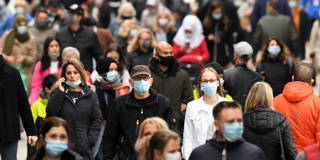From an economic perspective, the COVID-19 crisis has so far played out much better than feared for more vulnerable segments of society. Initial job and earnings losses were cushioned by generous state support, and the vigorous recovery is leading to much improved employment prospects for many.
BRUSSELS – During the acute phase of the COVID-19 pandemic in the spring of 2020, when a large part of the population was locked down at home, the economy fell into a deep recession that hit the unskilled and minorities particularly hard. Moreover, in contrast to previous downturns, the job losses were concentrated in sectors with a high proportion of female workers, justifying the term “shecession.”
The first indications, therefore, were that the fallout from the pandemic would exacerbate inequality. But the subsequent two years have provided signs that this is not necessarily the case.
For starters, the direct impact of actual or potential job losses on people’s income was offset in most developed countries by unprecedented government support. In the United States, this assistance took the form of checks mailed directly to millions of households. In Europe, most governments financed massive short-term schemes, under which the state footed the bill for firms to retain furloughed workers.

BRUSSELS – During the acute phase of the COVID-19 pandemic in the spring of 2020, when a large part of the population was locked down at home, the economy fell into a deep recession that hit the unskilled and minorities particularly hard. Moreover, in contrast to previous downturns, the job losses were concentrated in sectors with a high proportion of female workers, justifying the term “shecession.”
The first indications, therefore, were that the fallout from the pandemic would exacerbate inequality. But the subsequent two years have provided signs that this is not necessarily the case.
For starters, the direct impact of actual or potential job losses on people’s income was offset in most developed countries by unprecedented government support. In the United States, this assistance took the form of checks mailed directly to millions of households. In Europe, most governments financed massive short-term schemes, under which the state footed the bill for firms to retain furloughed workers.